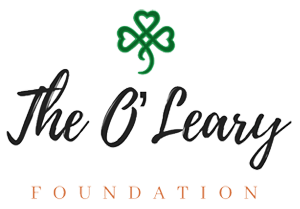What is financial abuse?
Financial abuse is when the abuser has control over the victim's money. This kind of abuse often occurs in physically and emotionally abusive relationships.
What is economic abuse?
Economic abuse is a broader concept of financial abuse. Abusers control a victim's ability to obtain and maintain resources; ultimately, the abuser threatens the victim's economic security and independence. It is more than abusing a victim and their money; abusers threaten and ruin something so vital like a victim's credit score.
Who is financially abused?
Definition
Child Financial Abuse is the misuse of a child's identity or assets for personal gain. It is often overshadowed by physical and emotional abuse causing it to be underreported. The impact is devastating on children's lives.Three Common Forms
- Parental
- Teen Dating
- Identity theft
Signs
- Child pays bills
- Child is punished for spending money
- Child receives mail about payments
- Child has a credit report
- Child has no access to their money
- Child is threatened with money
Impact
Most children do not know they have been financially abused until their adults. It will be extremely difficult to obtain huge accomplishments, such as buying a house or even renting an apartment because landlords look at credit scores. Also, the money still has to be paid to lenders; that is why it is vital to contact them, tell what happened, and work out payment arrangements or luckily get the debt completely cleared.Definition
Like children, the elderly are extremely vulnerable to financial abuse. Psychiatrist.com uses the broad definition of financial abuse from the National Center for Elder Abuse. It is "the illegal or improper use of an elder’s funds, property, or assets including, but not limited to, misusing or stealing an older person’s money or possessions, coercing or deceiving an older person into signing any document (eg, contracts or will), and the improper use of conservatorship, guardianship, or power of attorney." The definition shows both sides of the abuse, fraud and exploitation.Common Stories
The U.S. Department of Justice shares common stories of elder abuse. The first is exploitation by family, close friends, or neighbors (i.e. spousal fraud, identity theft by adult child, theft by guardian, misuse of a power of attorney, theft by friend and promised exchanges, etc). Secondly, exploitation by trusted professionals which involves investment fraud by financial advisor or tax preparers, forgery by caregivers, etc. Lastly, exploitation by strangers, including internet identity theft, fraud by “new sweetheart,” the "grandparent scam,” “home repair scam,” and “lottery scam.” The website goes in depth about the specific examples that may relate to you or someone you know.Signs
- Sudden changes in bank accounts
- Additional authorized uses on credit card
- Unauthorized withdrawals from ATM
- Abrupt changes of will or related documents
- Unexplained missing funds and valuable items
- Unpaid bills despite having the available funds
Impact
According to psychiatrist.com "financial abuse of elders is underreported." Annually, $2.9 billion is lost from financial abuse. Many elders depend on fixed incomes from government assistance and/or retirement savings. This means the ability to live their independent routines are ruined when someone takes advantage. Financial abuse not only affects elders, but their families also. Family members may have to step in to take care of the victim and work to fix the issue. This can cause many burdens, but financially, families are paying more money in bills and basic necessities than before. Ultimately, victims result in nursing homes or hospitalization and die prematurely because of the abuse and potential neglect from family and caregivers. Mortality rates of victims of elder abuse are "comparable" to victims of caregiver neglect, which is the highest mortality rate of all types of abuse. The National Library of Medicine states "Elder abuse (EA) affects one in six older adults, and financial EA, a common subtype, severely impacts victims and society. Again, there is limited of evidence because this type of abuse goes underreported. However, the National Library of Medicine conducted an experiment and went in great detail on their website. In result, "Financial abuse-only cases had the lowest prevalence of vulnerability and risk factors. Most of these factors, and a familial relationship, were significantly more common in cases involving other EA types. Findings indicate that financial abuse, occurring in isolation, is distinct from other EA types." According to the outcome of the experiment, the National Library of Medicine states financial abuse is a distinctive type of abuse and should be separated when documenting other EA types.Description
According to the National Network to end Domestic Violence (NNEDV), financial exploitation is a common tactic abusers gain power and control in an intimate relationship. Research shows that it happens in 99% of domestic violence cases, and it decreases the chances of a victim's security after leaving the abuser. The abuse may be subtle or extensive, but the impact has the same affect on victims. Some tactics are concealing information, limiting the victim's access to assets, or reducing accessibility to family finances. Along with the other types of abuse, financial abuse, is committed to entrap the victim. Financial abuse can happen throughout the relationship or especially when the victim tries to escape. This type of abuse is considered the most powerful when trying to keep the victim in the toxic situation.Signs
In some cases, financial abuse begins "very charming" but it is only to manipulate the victim. For example, the abuser may offer a weekly allowance so the victim can take a break from the stress of working. Victims get comfortable and begin trusting that the abuser loves them and merely wants to help. Ultimately, the allowance decreases sooner than later, and it is too late by the time victims want to gain back control over their finances. In other cases, ones that are more overt, abusers will commit, but are not limited to, this list:- manage all funds
- add debt to joint accounts
- hide assets
- withhold money
- not allow victim to access bank accounts
- refuse to contribute income
- forbid victim from working
- harass or stalk victim at their workplace
- force victim to file fraudulent tax returns
- force victim to write bad checks
- refuse to pay or evade child support
Impact
There are short- and long-term effects of financial abuse. In short-term situations, financial access is vital for the victim's safety. Without funds, survivors are often unable to afford safe housing; therefore, homelessness is a realistic fear they may have. After escaping a long-term situation, survivors have ruined credit scores, sporadic employment histories, and legal issues. This makes it difficult to gain back independence and security.Need help?
Children: Unfortunately, children do not manage their money in these cases. They do not find out their credit scores are ruined until adult age. However, they can report and contact lenders when it’s time.
Elders: Visit www.justice.gov for my information and help. To report, call the National Elder Fraud Hotline 833-372-8311 / 10am-6pm EST/ Mon-Fri, and the National Adult Protective Services Association (NAPSA) https://www.napsa-now.org/help-in-your-area.
Victims in Intimate Relationships:
Six Quick Tips
- Contact local DV program
- Have copy of credit report
- Monitor credit regularly
- Open P.O. box for mail
- Call all companies with fin. info
- Change pins on all cards
For more quick resources on financial abuse visit www.nnedv.org (scroll to bottom of the page under the article).
If you or anyone you know has questions about things, such as more basic information, credit card information, what to do after the abuser takes money or runs up debt, information about finances when leaving an abusive relationship, and getting your money back along with other assistance, www.womenslaw.org has specific answers to specific questions under the tabs I mentioned.
References
(n.d.). About Financial Abuse. Nnedv.org. Retrieved October 16, 2024, from https://nnedv.org/content/about-financial-abuse/
(n.d.). Financial Abuse. Womenslaw.org. Retrieved October 16, 2024, from https://www.womenslaw.org/about-abuse/forms-abuse/financial-abuse#:~:text=Withholding%20money%2C%20stealing%20money%2C%20and,some%20examples%20of%20financial%20abuse.
Dominquez, S. F., Ozguler, B., Storey, J. E., & Rogers, M. (2022, April). Elder Abuse Vulnerability and Risk Factors: Is Financial Abuse Different From Other Subtypes? Pmc.Ncbi.nlm.nih.gov. Retrieved October 16, 2024, from https://pmc.ncbi.nlm.nih.gov/articles/PMC8966108/
Outreach Team (2021, November 4). What is Financial Child Abuse? Dawsonplace.org. Retrieved October 16, 2024, from https://www.dawsonplace.org/what-is-financial-child-abuse/#:~:text=Financial%20child%20abuse%20is%20the,information%20for%20some%20economic%20gain.
Singh, B. K., DO, Rustad, J. K., MD, McWilliams, G., MD, Gaston, E., MD, JD, Poole, S., LICSW, & Stern, T. A., MD (2023, June 13). Financial Abuse of Older Adults: Screening, Prevention, and Interventions by Primary Care Providers. Psychiatrist.com. Retrieved October 16, 2024, from https://www.psychiatrist.com/pcc/financial-abuse-older-adults-screening-prevention-interventions-primary-care-providers/
U.S. Department of Justice (n.d.). Financial Exploitation. Justice.gov. Retrieved October 16, 2024, from https://www.justice.gov/elderjustice/financial-exploitation-0
(n.d.). What is economic abuse? Survivingeconomicabuse.org. Retrieved October 16, 2024, from https://survivingeconomicabuse.org/what-is-economic-abuse/
What is Financial Child Abuse? Endcan.org. Retrieved October 16, 2024, from https://endcan.org/2021/10/21/3-forms-of-financial-child-abuse/
Sylvia’s Blog
- Wine Tasting 2025 May 19, 2025
- Comorbid Dangers: Financial Abuse November 4, 2024
- Comorbid Dangers: Domestic Violence & Animal Abuse September 16, 2024





